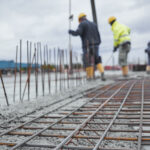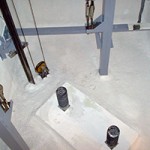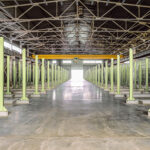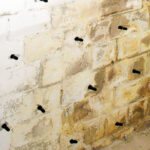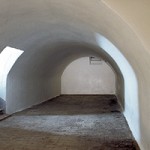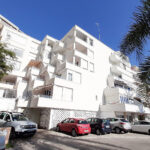Subsidies and incentives for thermal insulation, waterproofing and conservation applicable to residential buildings, single-family homes, businesses and industries.
Why Prolisur?
Prolisur has extensive and deep experience in the management of grants and incentives applicable to residential buildings, single-family homes, businesses and industries for the work we carry out. 100% of the grants processed by us have been successful, having saved significant amounts of money for our clients.
For example, Prolisur has been a Collaborating Entity of reference in the management of the incentives included in the Regulatory Bases for the Sustainable Energy Development of Andalusia in the period 2017-2020.
There are currently several current aid programs in Andalusia that could be of interest to you if you wish to energetically rehabilitate your building through thermal insulation, or improve its state of conservation by waterproofing roofs, flat roofs and facades.

Collateral benefits for rehabilitating your home
Rehabilitating your home has positive direct consequences (such as reducing the energy bill and thermal and acoustic comfort) and indirect ones. And it is that, Spain will allocate 6,320 million euros to rehabilitation and regeneration policies of the country’s residential stock, framed within the Recovery, Transformation and Resilience Plan. For this aid, the owners will obtain between 35% and 100% of the cost of the building improvement works .
The objectives of this program are to achieve more efficient housing buildings and reduce the population’s energy dependency. This last point is key to drastically lowering the alarming levels of energy poverty in our country.
On the other hand, the plan aims to direct the construction sector towards sustainability. Prolisur anticipated this need and has spent years innovating and studying new systems that combine efficiency, lower cost, durability and respect for the environment.
This economic injection foresees a change towards safer, healthier and more resilient cities and buildings for the entire population. And it is that, for those urban areas with profiles of social exclusion among their neighbors, which could hardly afford this type of project, this aid could range from 70 to 100% subsidy.
Tax deductions
The government studies recovering tax deductions for rehabilitation.
For works carried out that have reduced the demand for electricity consumption in heating and cooling by 7%, a deduction of 20% of the amount is foreseen. A fairly low and simple standard to apply (eg replacement of windows for efficient ones).
For those that represent a 30% saving in energy consumption, the reduction in the amount will be 40% or 60% (for each individual) if the rehabilitation actions are carried out in the entire building. In all cases, energy savings must be accredited through the corresponding energy efficiency certificate.
Aids for thermal insulation
Building Energy Rehabilitation Program
As of February 17, 2021, incentives may be requested in the Building Energy Rehabilitation Program (PREE). These aids also contemplate actions on a single dwelling within a block or premises within a building.
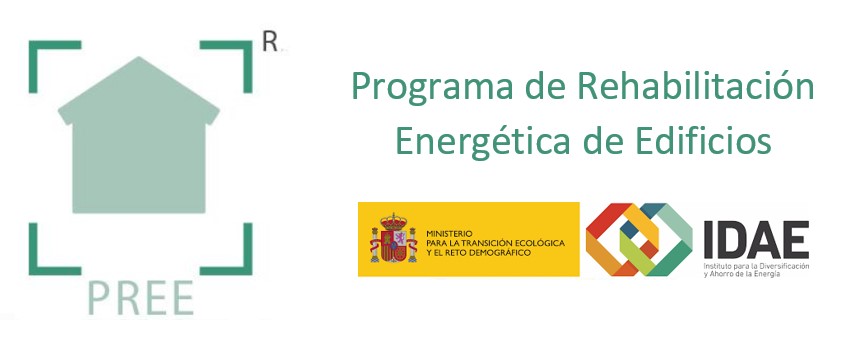
Maximum terms to take into account in the PREE
- To submit applications will be July 31, 2021, or exhaustion of funds.
- For the conclusion of the actions (maximum term of execution) object of aid will be 18 months from the date of notification of the resolution of the granting of the aid.
- The justification must be made within a maximum period of 3 months from the end of the maximum period granted for the execution of the actions.
Incentive amount in the PREE
The base aid percentage for actions aimed at improving the energy efficiency of the thermal envelope by means of thermal insulation of a complete building is 35%. Among the actions likely to aspire to obtain these grants, External Thermal Insulation Composite Systems (ETICS) are particularly relevant . On the other hand, if it only acts on a dwelling within a block or a premises within a building, said percentage will be 25%. In the latter case, the option of insulation without works is very interesting . However, the final amount of the incentive will be the sum of a basic aid and the additional aid that may correspond, where appropriate, based on compliance with social criteria, energy efficiency and integrated action.
Subsidies for the rehabilitation of buildings from the Ministry of Development, Infrastructure and Territory Planning
The term to apply for subsidies for the rehabilitation of collective residential buildings from the Ministry of Development, Infrastructure and Territorial Planning is now open. One of the lines is precisely intended for works that aim to improve the thermal envelope of the building through actions to improve its thermal insulation. These grants are intended for communities of building owners.

Maximum terms to take into account in grants
- You will have until March 31, 2021 to submit applications.
Amount of subsidies
The percentage of aid will generally be 40% of the eligible budget, applicable to buildings where, in at least 50% of the dwellings, the income of the cohabitation units is less than 5.50 times the IPREM. Likewise, they may not have obtained aid for the same building in the previous 3 years. In the event that said income is less than 3 times the IPREM, the aid will amount to 75% of the eligible budget. To aspire to obtain these grants, the External Thermal Insulation Composite Systems (ETICS) are especially interesting .
Grants for waterproofing and conservation
Under the same subsidy program for the rehabilitation of collective residential buildings of the Ministry of Development, Infrastructure and Territory Planning, there is another line, intended for conservation works.
These works include those works related to the state, among which are actions on roofs, flat roofs and facades, through waterproofing, repair and conservation systems.

